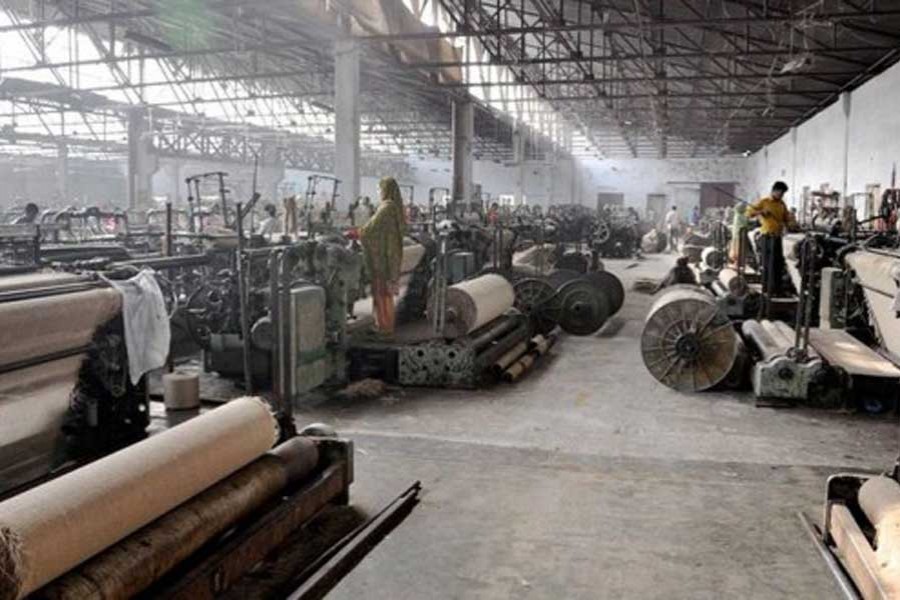As the indefinite strike of the state-owned jute mill workers shows no sign of abating, details of their grievances are also gaining increased attention. The reasons prompting them to take to the streets triggering deterioration in law and order situation are all too explicit to explain the severity of their grievances. The key question here is: how do the authorities justify non-implementation of pay scale to the workers for years, even not paying salaries for months? The government had approved the last national pay scale in 2015, and it was meant to apply to government organisations, corporations and autonomous bodies alike. For around four years now, 60,000 workers of state-owned jute mills are denied the pay scale that they rightfully deserved to benefit by. Worse still, salaries of workers in most mills are reportedly held up for months.
There is a clear distinction between the agitations of the jute mill workers and those of the garment workers. In case of the latter it is a regular phenomenon the country witnesses at least once a year demanding wage hike and other related perks. While garment workers are denied their demanded wage by their employers, the jute mill workers being employees of state-run entities are duped into an unfair deal by none other than the state sector itself. Reports have it that the authorities, Bangladesh Jute Mills Corporation (BJMC), are not in a position to arrange funds to implement the pay scale, nor are they able to pay the monthly salaries because of huge losses of the corporation. The corporation, reportedly, is also finding it difficult to get funds from the government. Due to the strike, production loss of the mills is said to be Tk 80 million a day.
The striking workers' demands, among others, include implementation of the pay scale, provident fund and gratuities to retired workers, payment of arrears of life insurance policies of deceased workers, payment of outstanding salaries and arrears, allocation of funds for purchase of jute on time, BMRE ((Balancing, Modernisation, Rehabilitation and Expansion) of the mills to raise productivity. A number of meetings between the labour unions and the BJMC to resolve the issues, particularly those relating to pay scale and arrears, did not succeed as fund crunch stood in the way. BJMC spokesperson is quoted in the media as putting it flatly on the inability of the corporation to manage the money-- a staggering Tk 3.38 billion needed for unpaid wages and salaries. On the other hand, the corporation's loss in the last fiscal was Tk 4.66 billion, according to reports.
Given the circumstances, it indeed appears strange that BJMC has been sitting on these longstanding problems knowing well the likely consequences. The losses of the corporation are no excuse in the first place. The workers are not to blame and suffer for failing to make profit which otherwise hinges on the mismanagement, inefficiency and lack of proactive planning of the corporation. At a time when jute is believed to be well set to regain its past glory and also dubbed by experts as the country's next growth driver, how does one explain the sorry state of BJMC? One only hopes it is not too late for BJMC to sit up and steer things as they should be. For now, redressing the plight of the workers is the immediate task.


